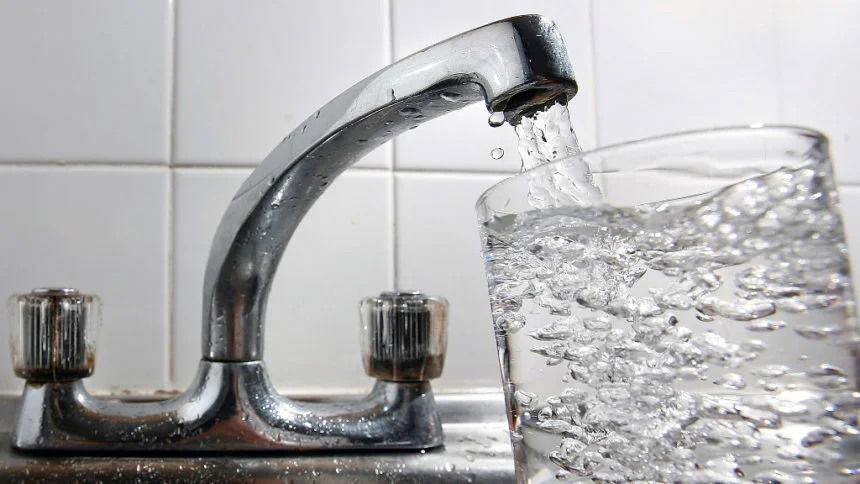‘Urgent action’ needed to address Oregon’s water insecurity crisis, Secretary of State Fagan says in new report

Calls it 'shocking ... that we don't have a plan to address the problem'
SALEM, Ore. (KTVZ) — The Oregon Legislature and Governor’s Office must take decisive action to address gaps in statewide water governance that contribute to water insecurity for Oregon communities, according to an advisory report released Thursday by Secretary of State Shemia Fagan.
The findings are outlined in the report entitled: State Leadership Must Take Action to Protect Water Security for all Oregonians.
“Water is life. And the findings in this advisory report are shocking,” said Fagan. “Not only are many families in Oregon dealing with water insecurity today, many more are at high-risk of becoming water insecure in the very near future.
"What’s shocking about this report is it shows that we don’t have a plan to address the problem. So today, I am offering the Oregon Legislature and Governor Kotek a road map to create a statewide plan to address water security in Oregon. We must take urgent action to address this crisis.”
Communities across Oregon are grappling with water insecurity, unable to reliably and routinely access adequate, safe, and clean water to meet their needs, she said.
Many factors can increase the risk of water insecurity, such as climate change, drought, overallocation of surface and groundwater, and the presence of contaminants which degrade water quality and endanger public health.
Fagan said Oregon is not well-prepared to systematically address these risks under its current governance model. Oregon’s institutional framework around water is fragmented and there are persistent and concerning governance gaps that undermine the state’s efforts to address water insecurity.
Oregon has made efforts to address some of these gaps in the past, to limited effect. There are notable ongoing efforts on the part of some state agencies and stakeholders, particularly around water planning and data.
Yet agencies with key water responsibilities lack the appropriate resources and guidance needed to make real, sustained headway, according to the report. Existing policies and political pressure may also act as a barrier to addressing these gaps and protecting water security for communities across the state.
The following aspects of water governance also need attention:
- The state lacks broad, diverse, and appropriately representative community engagement in water decisions
- Oregon does not have an actionable statewide water plan, or a regional framework that could tie a statewide plan to regional planning and implementation
- Key water agencies and state leadership lack shared water security priorities, making coordination more difficult when agencies have distinct areas of focus
- Water data is disaggregated and not set up to support regional planning needs
- The state lacks a water funding strategy that ties planning to investments, sustained funding for meeting community planning and implementation needs, and state agencies lack funding and capacity to fully carry out their duties
- External pressures, such as litigation from stakeholders, can sometimes prevent agencies from using their regulatory discretion to public benefit
- Federally recognized Tribes are unable to ensure water security in their homelands due in part to certain ongoing agricultural and industrial practices
Fagan said the state must develop a water governance model centered on meeting public needs and protecting water security. This model should build on past efforts and the ongoing work of state agencies, Tribes, communities, and stakeholder groups.
There is no single existing template that will easily fit Oregon’s unique needs; however, good water governance principles such as effectiveness, efficiency, and trust and engagement, as well as certain practices used in other states, can inform how Oregon develops a more robust water governance model.
In addition to developing a regional water planning framework, state leadership should pursue the following actions to better protect Oregonians from water insecurity now and in the future:
- Develop statewide priorities centered on water security shared by state leadership and agencies to guide holistic and inclusive water decisions
- Connect an actionable and comprehensive state water plan to a regional planning framework to guide water decisions and policy development
- Convene a formal planning and coordination body with diverse and balanced representation to guide the statewide plan and support regional planning needs
- Define the state’s overall role and specific agency roles within a regional framework to support effective planning and implementation and avoid overlap and gaps in service
- Increase public engagement and incorporate more diverse and balanced community feedback and needs into statewide and regional water decisions
- Enhance public awareness and understanding of the state’s water challenges
- Prioritize the human right to water and explore policy options to better protect community and ecosystem health
- Improve water data to support strategic decision making
- Adopt a strategic approach to water funding and establish a consistent funding base to support desired outcomes
- Clearly support state agencies tasked with carrying out regulatory responsibilities
- Integrate Oregon’s federally recognized Tribes as full and equal partners into state and regional water decision-making
While Thursday’s report is not an audit under government auditing standards, it has undergone the same quality assurance process. Issuing an advisory report allowed the Audits Division to consider a fuller scope of water governance responsibilities beyond those of a single state agency.
Read the full /report] on the Secretary of State website (https://sos.oregon.gov/audits/Pages/default.aspx).



